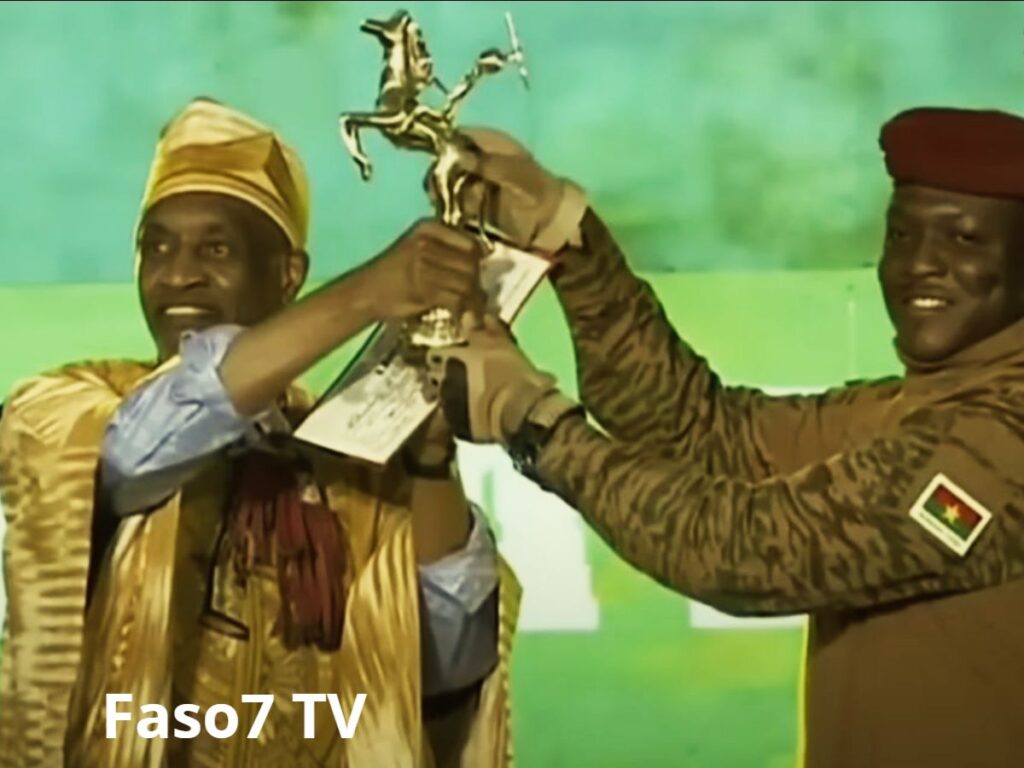The 29th Pan-African Film and Television Festival of Ouagadougou (FESPACO) wrapped up on March 1, 2025, with an eventful closing night at the Palais des Sports – Ouaga 2000. The ceremony ended a week-long festival that brought together filmmakers, industry professionals, and cinephiles from across Africa and beyond.
Awards as the Centerpiece
The heart of the evening was the awards presentation, with the Golden Stallion of Yennenga going to Dani Kouyaté for “Katanga, la danse des scorpions” (Burkina Faso). The win earned host country Burkina Faso its first Étalon d’Or in 28 years, making it a moment of national pride. Kouyaté also received the newly introduced Public Prize (an audience award).
Trailer for “Katanga, la danse des scorpions”
Other major winners included:
- Silver Stallion (Étalon d’argent): “The Village Next to Paradise” – Mo Harawe (Somalia)
- Bronze Stallion (Étalon de bronze): “On Becoming a Guinea Fowl” – Rungano Nyoni (Zambia)
In the documentary category, Malauray Éloi Paisley’s “L’Homme-Vertige” (Guadeloupe) won both the Golden Stallion (Documentary) and the Paul Robeson Prize for best diaspora film.
The Silver Stallion went to Nelson Makengo’s “Tongo Saa (Rising Up at Night)” (Democratic Republic of Congo), while Joël Akafou’s “Loin de moi la colère” (Côte d’Ivoire) took the Bronze Stallion.
Other Award Categories:
- Short Film (Fiction) Golden Foal (Poulain d’or): “I Promise You Paradise” – Morad Mostafa (Egypt)
- Short Film (Documentary) Golden Foal: “Khamsinette” – Assia Khemici (Algeria)
- Critics’ Week Prize: “Chroniques fidèles… à l’hôpital Blida-Joinville…” – Abdenour Zahzah (Algeria)
- Oumarou Ganda Prize (Best First or Second Feature): “Who Do I Belong To” – Meryam Joobeur (Tunisia)
A Night of Tributes, Statements, and Performances
The ceremony paid tribute to Malian filmmaker Souleymane Cissé, who had been slated as jury president but passed away shortly before the festival. Kouyaté, upon receiving his award, honored Cissé by saying, “Souleymane Cissé has been a model for me… he lives on in our hearts and minds.” He also dedicated his win to Burkina Faso, acknowledging the country’s ongoing struggles and expressing confidence in its future.

Many winners used their moment on stage to speak on broader issues, from the role of cinema in social change to the importance of storytelling in preserving cultural identity.
Despite security concerns in Burkina Faso, over 15,000 attendees participated in this year’s festival. Chad, the guest country of honor, was well represented by a high-profile delegation, including its president, Mahamat Idriss Déby Itno.
Other notable figures in attendance included Burkina Faso’s own Apolline Traoré and pioneer Fanta Régina Nacro, Franco-Senegalese actress and director Mouna N’Diaye, as well as Ghanaian actress Jackie Appiah, who received a “Les Stars à l’Honneur” award (for her contributions and influence) earlier in the week.
Directed by Aristide Tarnagda, the closing ceremony featured live performances reflecting this year’s theme, “African Cinema and Cultural Identities.”
Music and dance filled the evening, closing out a festival that serves as a meeting place for the continent’s creative voices.
Mahamat-Saleh Haroun’s Quiet Return
Whether Mahamat-Saleh Haroun would appear in any capacity at FESPACO 2025 had been an open question since Chad was announced as pays à l’honneur (Country of Honor) almost a year ago. Haroun, one of contemporary African cinema’s most internationally recognized filmmakers, has had a complex relationship with the festival as one of its harshest critics.
After years of absence, Haroun did attend FESPACO 2025, though with a notably low profile. Instead of being featured in the official program, he led a small masterclass “on the sidelines” of the festival, which covered his career, though it remained outside the main festival spotlight.
Looking Ahead
FESPACO General Delegate Alex Moussa Sawadogo concluded the event by inviting everyone to the festival’s 30th edition, officially scheduled for February 27 – March 6, 2027.
The 2025 edition closed with an emphasis on the role of cinema in shaping narratives and encouraging dialogue, so that the discussions started at FESPACO will continue long after the festival’s end.
See you there in 2027!